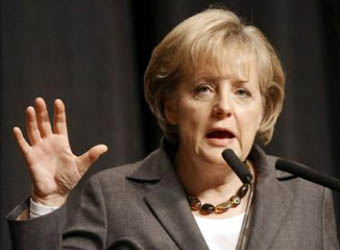Chancellor Angela Merkel’s conservatives and Social Democrats (SPD) traded barbs about migration and tax cuts on Tuesday amid mounting questions about whether they can agree to renew the “grand coalition” that ruled Germany for the past four years.
Merkel, under pressure after failing to form a government three months after national elections, hopes to secure a fourth term in office by persuading the center-left SPD to join the government despite punishing losses in September’s election.
Party leaders will meet for preliminary talks on Jan. 3 ahead of exploratory talks scheduled for Jan. 7 through Jan. 12, but a growing number of politicians now say Merkel might have to rule with a minority government, or face new elections.
SPD deputy leader Thorsten Schaefer-Guembel said recent comments by some conservatives were “counterproductive for every form of government formation” and said they had sparked doubts about the will of conservatives to govern together.
He said a deal on a new coalition was far from certain and it was unclear if the talks could develop sufficient trust.
“A minority government remains an option, even if Chancellor Angela Merkel doesn’t want to acknowledge that,” he said in an interview published Tuesday in the Passauer Neue Presse newspaper.
Schaefer-Guembel cited differences with conservatives on a range of issues and rejected as “absurd” proposals by some conservatives to cut taxes for high-income earners.
Conservatives and the SPD are also at odds over healthcare, immigration, Europe, work regulations and pensions.
Schaefer-Guembel said he backed calls by SPD parliamentary leader Andrea Nahles to raise taxes for the wealthiest and urge fresh efforts to prevent big companies from evading taxes.


